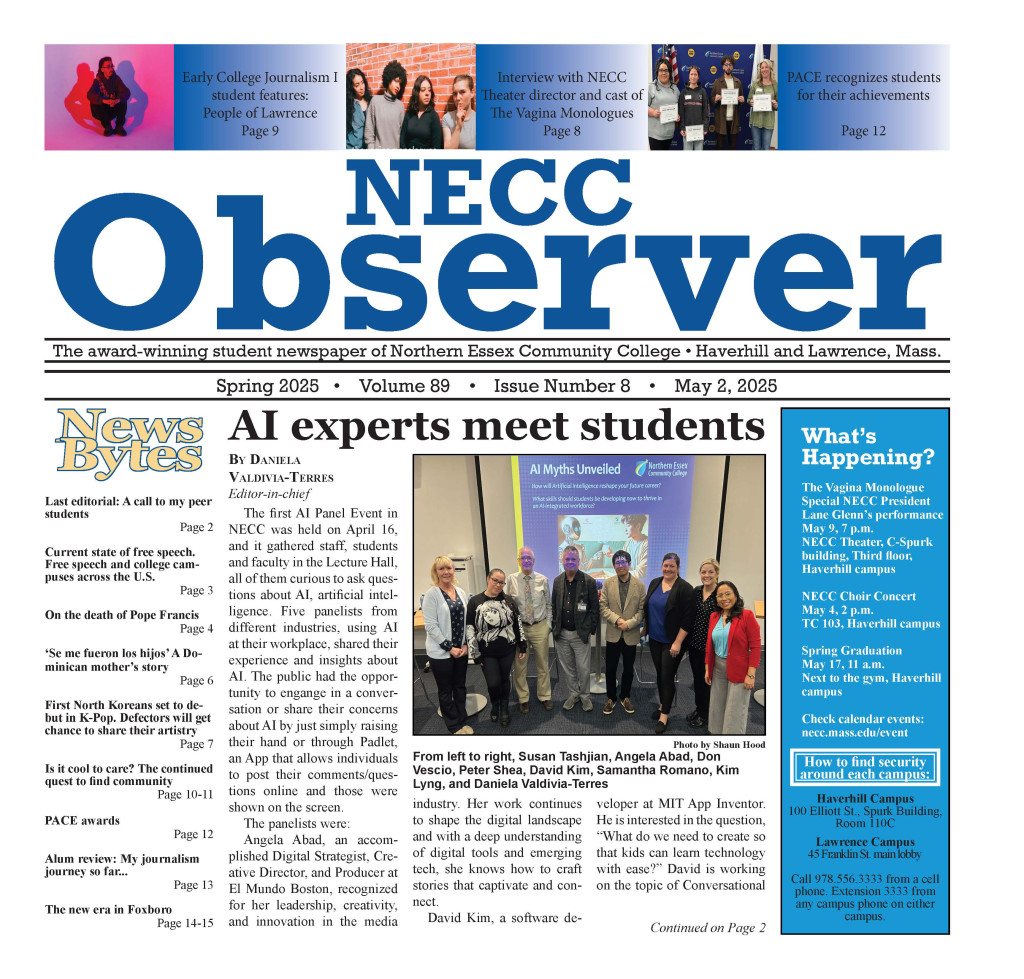Sometimes ‘okay’ is the best we got. And for surviving 2020, ‘okay’ is pretty good.
As we come upon the one-year mark of quarantine, Americans couldn’t be more eager to head out and get back our personal space — especially with the increasing rollout of vaccinations.
For better and worse, we have gotten to know our families and quarantine-partners very well. Not just your parent, sibling, child, or significant other; but their working-mode as well, as many professions are still mostly (if not entirely) virtual.
The natural circumstances of quarantine’s restrictions have applied stress to our personal and physical spaces. “
The beginning was a struggle,” said Owen Devlin, 21 year old communications student at NECC. Devlin describes the obstacles he’s overcome alongside his parents. “We had our own separate spaces but we’d get in the way of each other… We’ve learned to adapt,” he said.
With limited space forcing many of us to share work and personal environments, Devlin says he’s found the most positive success in addressing that exact issue.
“It helps to have more space to yourself,” he said.
Devlin has made the effort after struggling in the beginning of quarantine to create his own separate area to work. “I’m trying to respect my personal space and my family’s,” he said. Though it’s obviously easier said than done, as Devlin explains the difficulty of staying productive while on his comfortable bed.
Overall, there haven’t been many dramatic changes. They’re still the same individuals. “We’ve kept our ground,”he said.
Also enduring the Cabin Fever experience with his parents and dog Kipper is Leo Wellock, 20 year old NECC communications student. “It’s been hectic with all the compression,” he said.
Devlin and Wellock both express their effort in looking for the silver lining.
Devlin and his family focus on working efficiently throughout the week, and dedicating the weekends to quality, family time. This includes staying connected with his brother, who moved out not long ago.
“I appreciate those moments as best as I can,” he said.
Instead of waiting for the day he can escape, Devlin looks forward to being able to share the experiences he’s missed for the past year with those he cares about.
For others, connections have grown stronger in the trying conditions. “We’ve grown more of a ‘best friend’ relationship than a ‘mother and daughter’ one,” says Kylie Stewart, 19 year old NECC student.
“I’ve learned that [my mom] had gone through a lot more that I never knew, that I’m also going through.”
Stewart has been quarantining with her parents, younger brother, and boyfriend. Her boyfriend came into the household several months into quarantine when his previous housing was no longer available. As with many homes, quarantine has emphasized the everyday stress and strain of life.
And boundaries can be much harder to set. “We’re all trying to do our own thing.” Stewart says that some days are ‘hit and miss,’ but that she will “always look at the positives.”
For the remaining days stuck inside, and the much brighter ones down the road, Stewart appreciates the simple constants of her life. “Besides my mom, my relationship with everyone else has been neutral. I at least hope it stays neutral.”
Sometimes ‘okay’ is the best we got. And for surviving 2020, ‘OK’ is pretty good.

